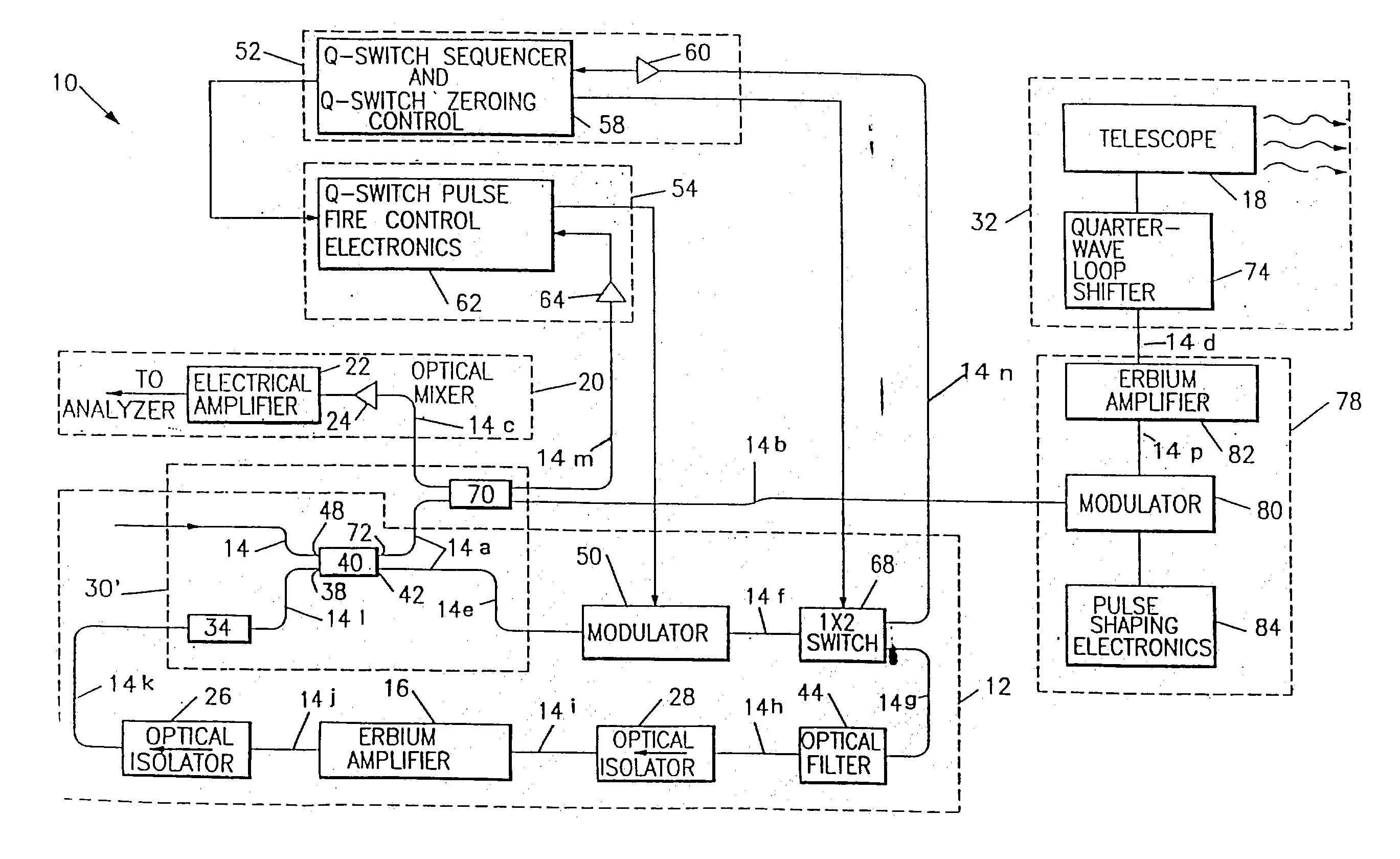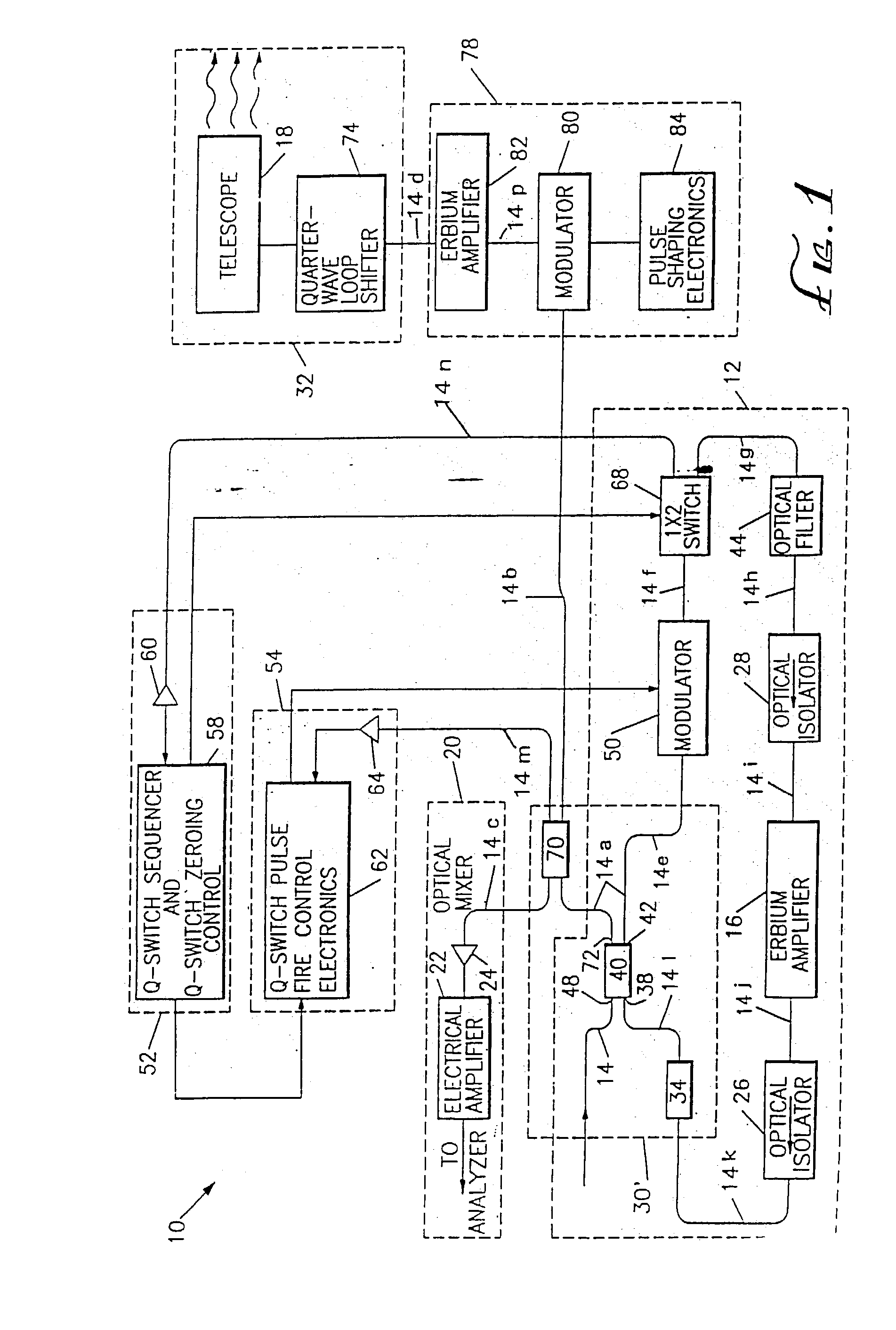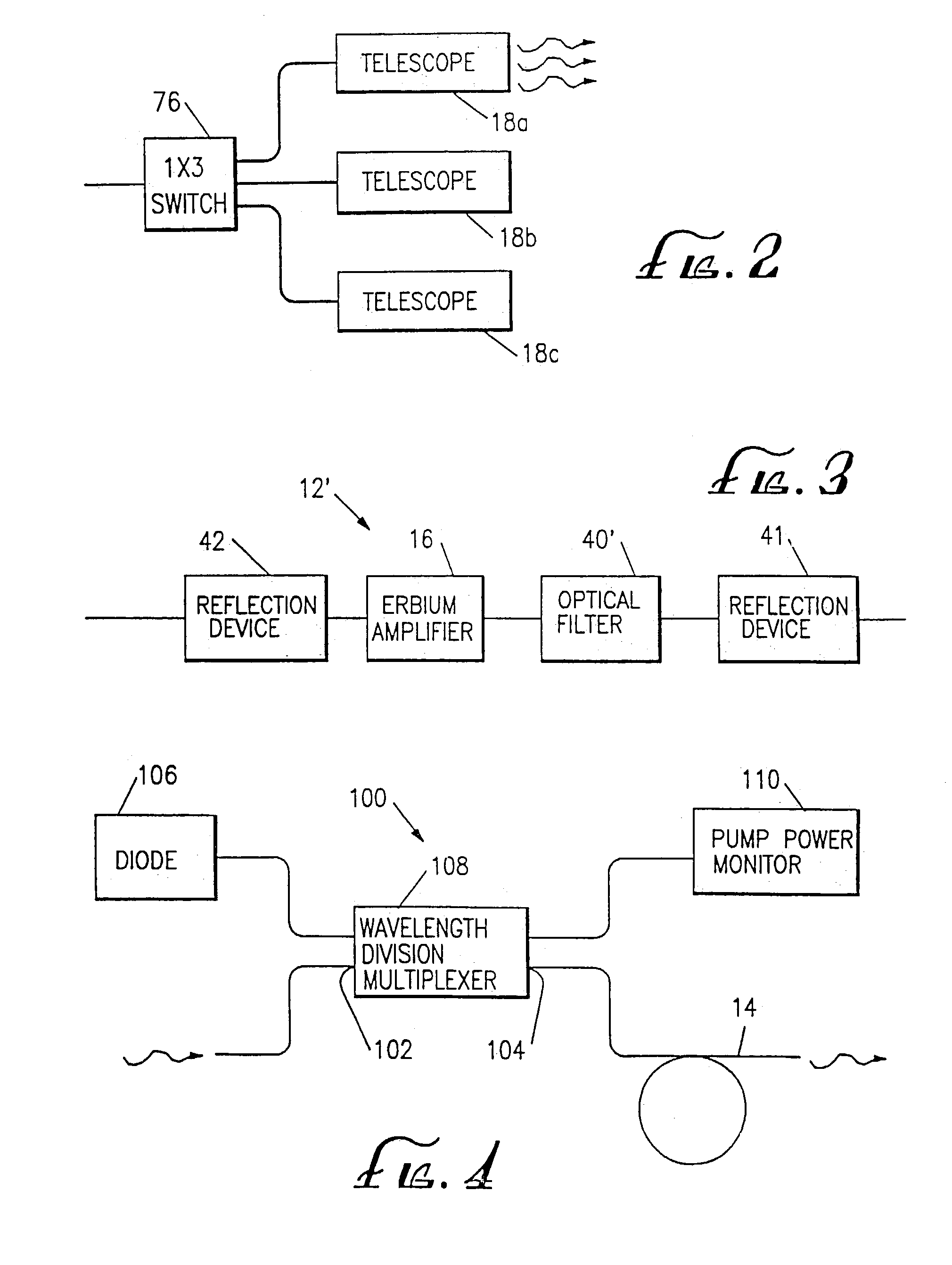Laser doppler velocimeter
- Summary
- Abstract
- Description
- Claims
- Application Information
AI Technical Summary
Benefits of technology
Problems solved by technology
Method used
Image
Examples
Embodiment Construction
[0035]According to the present invention a laser Doppler velocimeter 10 is formed from the subsystems depicted in FIG. 1. The components used in this system are commercially available or are available as custom components from various manufacturers. The laser Doppler velocimeter can be configured to operate in four distinct modes. Three of these modes take advantage of the energy storage properties of erbium-doped optical fiber in a different way to produce a high energy coherent pulse of energy using low power commercial laser diode pump sources. A fourth mode operates ring or linear geometry laser devices in a continuous fashion, but at high power through use of very high power laser pump diodes.
Operational Mode I:
[0036]The laser Doppler velocimeter 10 includes a laser 12 formed in a ring geometry as indicated by dashed lines in FIG. 1 or a laser 12′ formed in a linear or Fabry-Perot geometry as shown in FIG. 3. The laser subsystem uses an optical wave guide formed from optical fi...
PUM
 Login to View More
Login to View More Abstract
Description
Claims
Application Information
 Login to View More
Login to View More - R&D
- Intellectual Property
- Life Sciences
- Materials
- Tech Scout
- Unparalleled Data Quality
- Higher Quality Content
- 60% Fewer Hallucinations
Browse by: Latest US Patents, China's latest patents, Technical Efficacy Thesaurus, Application Domain, Technology Topic, Popular Technical Reports.
© 2025 PatSnap. All rights reserved.Legal|Privacy policy|Modern Slavery Act Transparency Statement|Sitemap|About US| Contact US: help@patsnap.com



